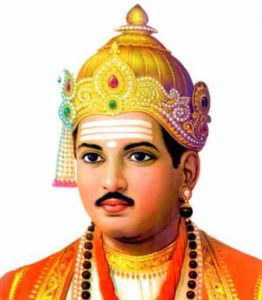Basava Jayanti, observed on 30th April every year, marks the birth anniversary of Jagadguru Basaveshwara, fondly known as Basavanna, a revolutionary saint, philosopher, and social reformer from 12th-century Karnataka. He is the founding figure of the Lingayat movement, which emphasized devotion over ritual, equality over hierarchy, and work over idle worship.
🌟 Who Was Basavanna?
Basavanna was born in 1131 CE in Basavana Bagewadi, now in modern-day Karnataka. He later served as a prime minister under King Bijjala of the Kalachuri dynasty. A bold reformer, he rejected caste discrimination, Brahmanical orthodoxy, and meaningless rituals, instead promoting a spiritual democracy based on personal experience of God and moral living.
He established the Anubhava Mantapa, a spiritual assembly that welcomed saints, women, farmers, cobblers, and scholars alike — a unique forum of its time that encouraged open dialogue and collective progress.
🕊️ His Teachings and Philosophy
Basavanna’s philosophy is rooted in practicality, morality, and inclusivity. His core ideas include:
-
Kayaka (Work is Worship): Every individual must engage in honest labor, which is seen as a form of devotion.
-
Dasoha (Selfless Service): The fruits of labor must be shared with the needy, not hoarded.
-
Equality and Dignity for All: He rejected the caste system and gender discrimination.
-
Personal Spiritual Connection: He emphasized internal devotion through Vachanas — poetic reflections on the Divine.
📜 Vachana: Kayakave Kailasa (Work Is Heaven)
Here is the full vachana by Basavanna that beautifully expresses this philosophy:
ಕೆಲಸದ ಸೇವೆಯೆ ಸ್ವರ್ಗ, ಕೈಯ ಕಾರ್ಯವ ಪವಿತ್ರವೇ.
ಕೈಲಾಸವೆಂಬುದು ದೂರವಲ್ಲ, ಕಾಯಕವೇ ಕೈಲಾಸ.
ಅದು ಕಾಯಕದಿಂದಲೇ ದೊರೆಯುವುದು, ಬೇರಾವುದರಿಂದಲೂ ಅಲ್ಲ.
ನಾದಪ್ರಭು ಬಸವೇಶ್ವರರ ದಾಸನು ನಾನು.
Translation:
“Work itself is worship, labor itself is sacred.
Kailasa (heaven) is not far away — it is found in honest work.
Heaven is not in distant skies, but in righteous action.
This truth is known only through Kayaka (work), not through idle rituals.
I am a humble servant of Lord Basavanna.”
This vachana teaches us that heaven is not a place we reach after death, but a state of being we create through honest, meaningful work and selfless living.
🙏 Basava Jayanti Celebrations
Across Karnataka, Maharashtra, and other parts of India, Basava Jayanti is marked by:
-
Processions with Basavanna’s idol and flag.
-
Public recitations of Vachanas.
-
Discourses and seminars on his teachings.
-
Community service inspired by Kayaka and Dasoha.
-
Cultural programs celebrating Kannada literature and Lingayat heritage.
🌼 Relevance in the Modern World
In today’s world, where inequality, discrimination, and hollow materialism often dominate, Basavanna’s teachings are a beacon of truth:
-
His belief in dignity of labor upholds the rights of all workers.
-
His vision of gender and caste equality challenges outdated norms.
-
His call for inner devotion over ritual inspires true spirituality.
✨ Conclusion
Basavanna’s life was a divine blend of social reformation, spiritual enlightenment, and poetic expression. He showed us that one need not renounce the world to attain the Divine — to work with honesty and serve with love is to live in Kailasa itself.
As we celebrate Basava Jayanti, let us commit ourselves to his ideals — to respect every individual, work with integrity, and share with compassion.
“Kayakave Kailasa — Work is Worship.
Let us turn our every deed into a step toward the divine.”









